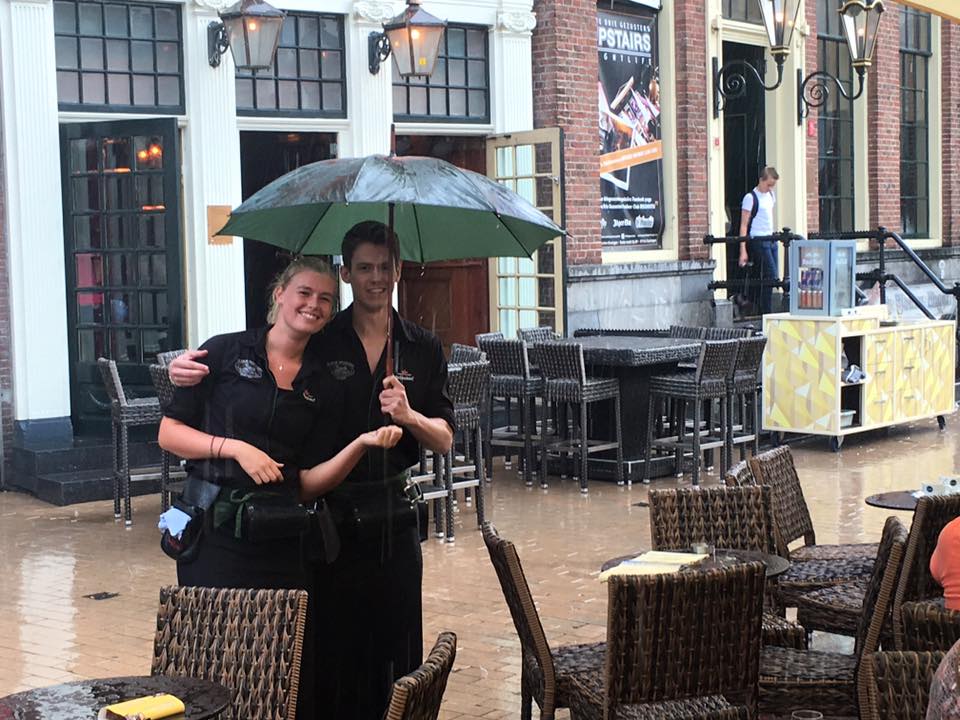“Europe today has little desire to reproduce itself,
fight for itself or even take its own side in a argument.
By the end of the lifespans of most people currently alive,
Europe will not be Europe and the peoples of Europe
will have lost the only place in the world we had to call home”
– Douglas Murry (“The Strange Death of Europe”)
Large European universities such as Rijksuniversiteit Groningen are integrated into the fabric of the surrounding city. There are several ways in which this integration takes place:
Physical location: Many European universities are located in the heart of the city, often in historic buildings that have been repurposed for educational use. This central location means that the university is easily accessible to students and the general public, and that it is often surrounded by other cultural institutions, such as museums, theaters, and libraries.
Student life: The presence of a large student population can have a significant impact on the city’s culture and economy. Many European cities have developed a vibrant student culture, with cafes, bars, and other venues catering to the needs and interests of young people. This can help to create a sense of community between the university and the city, and can also bring economic benefits to local businesses.
Research and innovation: Large European universities are often at the forefront of research and innovation, and they can be important drivers of economic growth in the surrounding region. Many universities work closely with local businesses and industries, and they may also collaborate with other universities and research institutions in the area.
Cultural exchange: Universities can be important centers of cultural exchange, both for international students and for local residents. Many European universities offer language classes and other cultural programs that are open to the public, and they may also host lectures, concerts, and other events that are designed to promote cross-cultural understanding.
Overall, the integration of large European universities into the city is a complex and multifaceted process that can have a significant impact on the social, cultural, and economic life of the surrounding region.
The origin of brown cafés can be traced back to the 17th century, during the Dutch Golden Age. At that time, the Netherlands was a prosperous and influential trading nation, and Amsterdam was a bustling city with a thriving port. Sailors, merchants, and locals needed places to socialize, relax, and conduct business, leading to the emergence of taverns and pubs.
The term “brown café” is believed to have originated from the brownish stains that formed on the walls and ceilings due to tobacco smoke, candle soot, and other atmospheric elements. These stains gave the cafés a distinct, cozy ambiance and a sense of history.
Brown cafés became an integral part of Dutch culture, serving as communal gathering spots for people of all walks of life. They were places where locals would meet friends, engage in conversations, enjoy a drink, and sometimes play board games like chess or backgammon. Over time, brown cafés became associated with an authentic, unpretentious, and relaxed atmosphere, attracting both locals and tourists.
The unique charm of brown cafés lies in their preserved historical interiors, with old wooden furniture, dim lighting, and a wide selection of local beers and spirits. Many brown cafés still retain their original character, transporting visitors back in time and providing a cozy retreat from the hustle and bustle of modern life.
While the concept of brown cafés originated in the Netherlands, similar types of establishments can also be found in other European countries, such as Belgium and parts of Germany. However, the term “brown café” is primarily associated with the Dutch tradition of cozy, atmospheric, and convivial drinking establishments.
Studenten van @RSMErasmus passen het vak #standaardisatie toe in de praktijk. Komende maand helpen zij vijf ondernemers van @TheGrnVillage met #normalisatie vraagstukken rondom hun #innovatie.
Wij zijn benieuwd naar de resultaten.#learningcommunity #praktijkonderwijs pic.twitter.com/OIpPXQpGsf
— NEN (@NEN_nl) February 13, 2023









